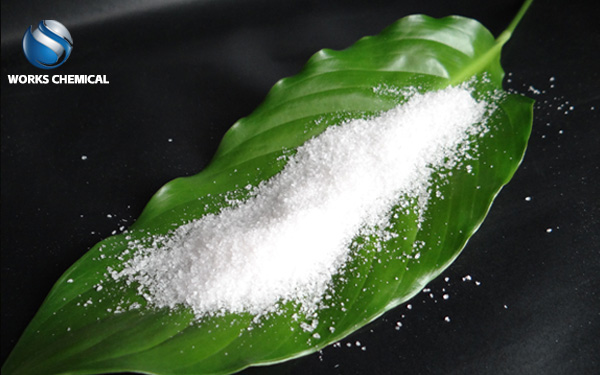
In the grand background of environmental protection and water resources recycling, the importance of sludge treatment as the end link in the sewage treatment process is self-evident. Sludge, as a by-product produced in the sewage treatment process, contains a lot of water and organic matter, and its efficient dewatering treatment is not only related to environmental protection, but also directly affects the operating efficiency and cost of sewage treatment plants and the subsequent resource utilization of sludge. As an indispensable key role in this process, sludge synergists are gradually showing their unique charm and value.

Overview of sludge synergists
Sludge enhancer, as the name suggests, is a chemical agent specifically used to promote the removal of water from sludge. By changing the physical and chemical properties of the sludge, the binding force between the sludge particles is weakened, and the water is more easily separated from the sludge, so as to achieve the purpose of efficient dehydration. There are many kinds of sludge synergists, including inorganic salts, high molecular polymers, biological enzymes, etc., which have different mechanisms of action and application scenarios.
Mechanism of action of sludge synergists
The mechanism of action of sludge synergists mainly involves the following aspects:
Charge neutralization: Some sludge enhancers have the opposite charge to the sludge particles, and can
neutralize the charge on the surface of the sludge particles, so that the electrostatic repulsion between the sludge particles is weakened, and the particles are easier to gather, which is conducive to the removal of water.
Adsorption bridging action: the sludge synergist can be adsorbed on the surface of the sludge particles to form a film, and through its long chain structure, multiple sludge particles are connected to form a larger floc. These flocs are more likely to separate water during dehydration.
Osmotic pressure: sludge enhancers can increase the osmotic pressure of the sludge, making it easier for water to penetrate out of the sludge.
Bioenzyme degradation: the sludge synergist can decompose some organic matter in the sludge, weaken the binding force between the sludge particles, and release more bound water, which is conducive to the removal of water.
3. Application advantages of sludge synergists
High efficiency dehydration: sludge synergists can significantly improve the dehydration efficiency of sludge, shorten the dehydration time, and reduce the moisture content. This is of great significance for reducing sludge volume and reducing transportation and storage costs.
Improve sludge properties: After the use of sludge synergists, the particle structure of the sludge is improved, and the binding force between the particles is weakened, making the sludge easier to be treated by subsequent treatment equipment.
Environmental protection and safety: Many sludge enhancers are made of environmentally friendly and non-toxic raw materials, which are harmless to the environment and human body. At the same time, they will not damage the useful components in the sludge, which is conducive to the resource utilization of the sludge.
Economic savings: Although the use of sludge synergists will increase a certain amount of treatment costs, the improvement of dehydration efficiency and the reduction of subsequent treatment costs brought by it make the overall treatment costs effectively controlled.
Four, the selection and use of sludge synergists
When choosing a sludge synergist, it is necessary to consider many factors such as the nature of the sludge, the performance of the treatment equipment, the treatment requirements and the cost effectiveness. Here are some suggestions for use:
Understand sludge properties: different sources of sludge have different properties, such as composition, moisture content, viscosity, etc. In the selection of sludge synergists, it is necessary to fully understand the nature of the sludge in order to select the appropriate type and dosage of the agent.
Optimal dosing method: the dosing method of sludge enhancer has an important influence on its effect. Generally speaking, dry casting method, wet casting method or dilution after adding and other methods can be used. In actual operation, the appropriate dosing method should be selected according to the performance of the treatment equipment and the nature of the sludge.
Control dosage: The dosage of sludge enhancer should be adjusted according to the nature of the sludge and the performance of the treatment equipment. Too much or too little dosage may affect the treatment effect and economy. Therefore, it is recommended to conduct a small or pilot test to determine the best dosage.
Monitoring treatment effect: In the process of use, the dewatering effect and water content of the sludge should be regularly monitored to ensure the effectiveness of the sludge synergist. If the effect is not satisfactory, the dosage or dosage method should be adjusted in time.
Market prospects and challenges of sludge synergists
With the increasingly strict environmental protection policies and the continuous progress of sludge treatment technology, the application prospect of sludge synergists in the field of sludge treatment is more and more broad. However, the market is also facing some challenges, such as the complexity of sludge properties, the diversity of treatment equipment, and cost-effectiveness considerations. Therefore, the research and development and production of sludge synergists need continuous innovation and improvement to meet market demand.
Six, Conclusion
Sludge enhancer as a key role in the sludge treatment process, its high efficiency and environmental protection characteristics make it play an important role in environmental protection management and water resources recycling. Reasonable selection and use of sludge enhancers can significantly improve the dewatering efficiency of sludge, reduce water content, reduce environmental pollution, and promote the resource utilization of sludge. In the future, with the continuous progress of technology and the continuous promotion of application, sludge agent will usher in a better development prospect in the field of sludge treatment.